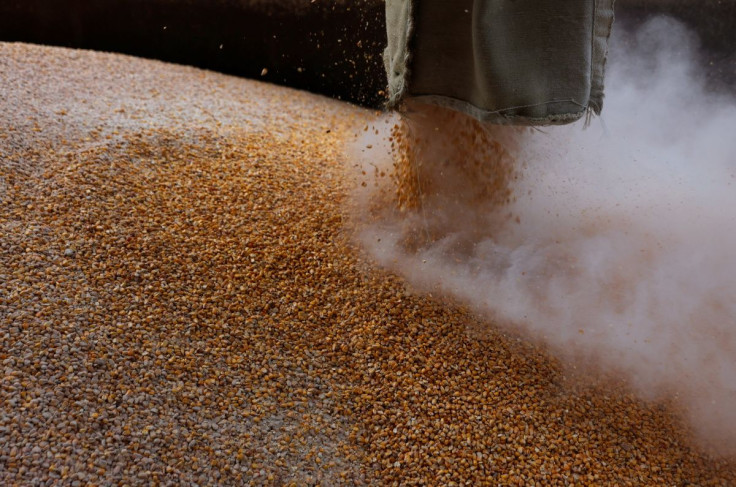High Hopes Lavrov Visit To Turkey Unlocks Ukraine Grain Exports, Turkish Source Says

Turkey expects progress on a plan to unlock grains exports from Ukraine's Black Sea ports when Russia's foreign minister visits next week and both Moscow and Kyiv want a solution despite their conditions, a senior Turkish official said.
Though hurdles remain - such as payment mechanisms for the agricultural products and mines floating in the Black Sea - the official said Moscow could take further positive steps after it said on Thursday it was open to the plan.
Since Russia invaded on Feb. 24, Ukrainian grain shipments from its Black Sea ports have stalled and more than 20 million tonnes of grain are stuck in silos.
The conflict has fueled a global food crisis with prices of grains and fertilizer soaring, prompting the United Nations to pitch the plan to re-open shipping routes from Odesa and other Ukrainian ports.
Turkey neighbours Ukraine and Russia at sea and has said it is ready to take on a role within an "observation mechanism" if a deal is reached. That could involve a Turkish naval escort for tankers leaving Ukraine and transiting Turkey's straits.
Turkish Foreign Minister Mevlut Cavusoglu hosts his Russian counterpart Sergei Lavrov for talks on the plan on June 8.
"Turkey has been negotiating with the parties on this for a while. Russia has some conditions...but there is an expectation of progress. Russia wants this problem solved, as do Ukraine and other countries," the official told Reuters.
"There may be some concrete results, but there are also some technical and difficult issues such as the product purchases and money transfers," they added.
Russia and Ukraine account for nearly a third of global wheat supplies, while Russia is also a big fertilizer exporter and Ukraine is a major exporter of corn and sunflower oil.
Ukrainian Ambassador to Ankara Vasyl Bodnar said Russia was shipping and selling grains it stole from Ukraine, including to buyers in Turkey. Kyiv had sought help from Turkish authorities in identifying sellers and buyers, he said.
He added that Kyiv would have to take the security of its ports into account when agreeing terms. Some 22 million tonnes of grains are hidden at ports but need to be shipped soon to avoid rotting, he added.
"We must have a military perspective when taking decisions," Bodnar told reporters in Ankara. "We expect the U.N. to contribute more to finding a solution that works for both parties."
CONDITIONS
Earlier this week, Turkey's Cavusoglu said Russia wanted some Western sanctions targeting its insurance sector lifted in order to agree to the corridor since they affect ships, while Ukraine did not want Russian warships approaching its Odesa docks. He later also said Kyiv wanted ships involved in the plan not to carry weapons into Ukraine.
Speaking to Spain's El Pais daily, Erdogan's spokesman Ibrahim Kalin said Ankara hoped for a result within two weeks and added Lavrov will arrive in Turkey with experts on the issue.
He said the "observation mechanism" would be based in Istanbul but run by the U.N. with Ukrainian and Russian representatives monitoring shipments, with distribution via international markets.
Moscow assured Ankara it would not attack Odesa if the corridor is created, Kalin said. "We will facilitate and protect transport through the Black Sea, and the Ukrainians will sell it to whom they decide."
President Vladimir Putin said on Monday Russia was ready to facilitate the unhindered export of grain from Ukrainian ports in coordination with Turkey.
Ankara has good relations with both Moscow and Kyiv and has sought to facilitate peace negotiations. It has criticised Russia's invasion and sold Ukraine armed drones, but has not backed the Western sanctions on Moscow.
(Writing by Daren Butler; Editing by Jonathan Spicer and Angus MacSwan)
© Copyright Thomson Reuters 2024. All rights reserved.







